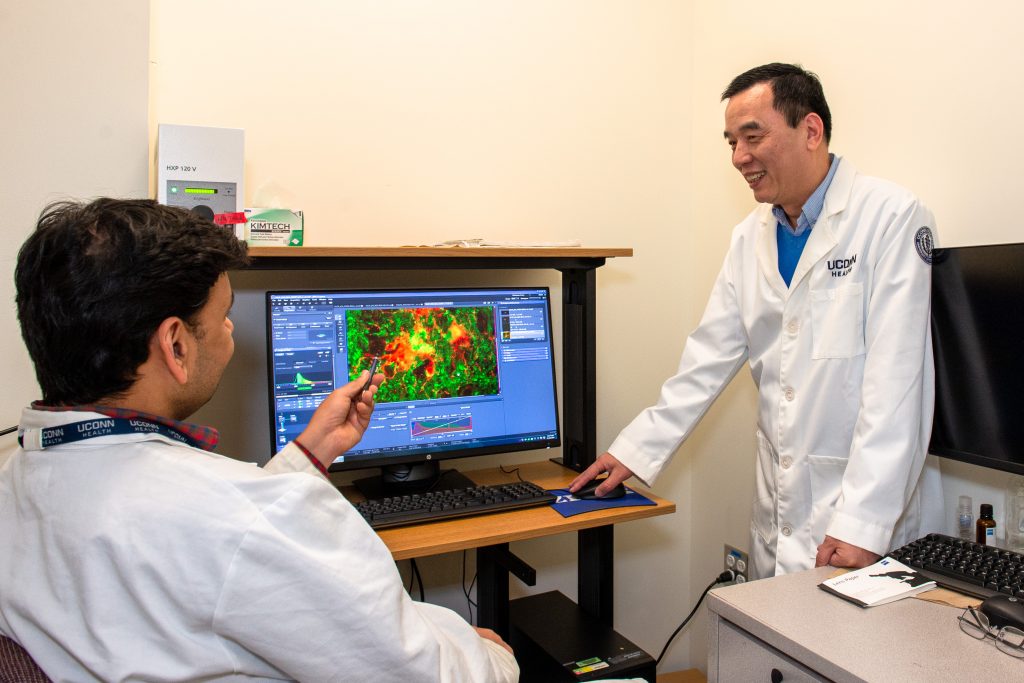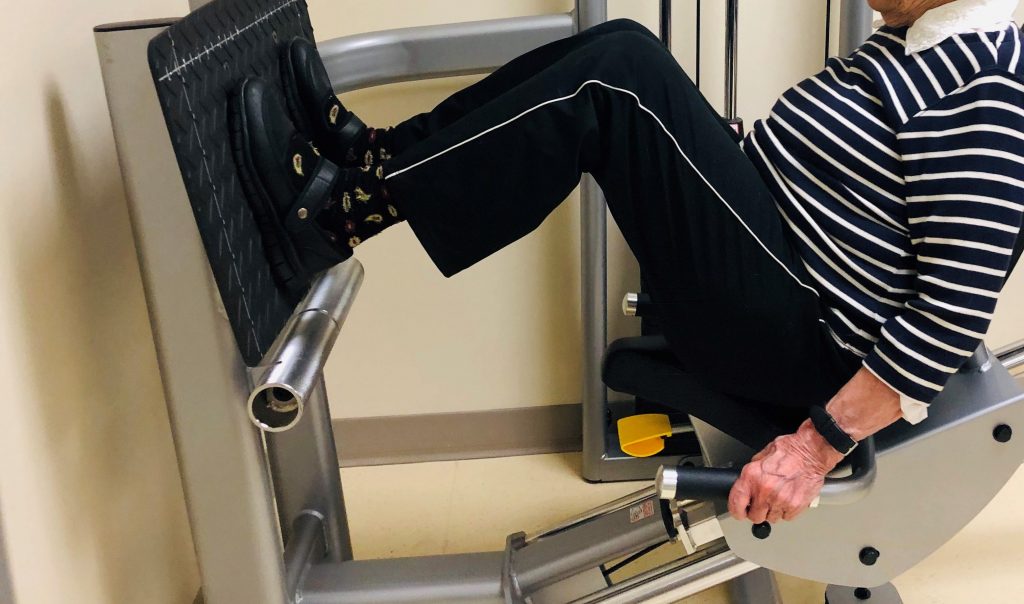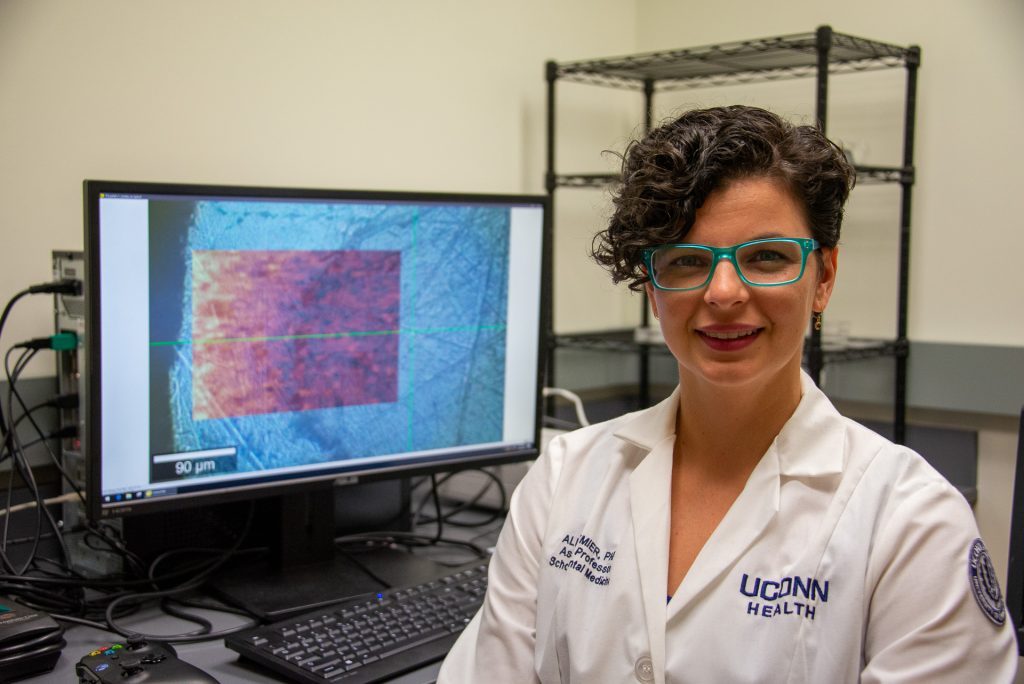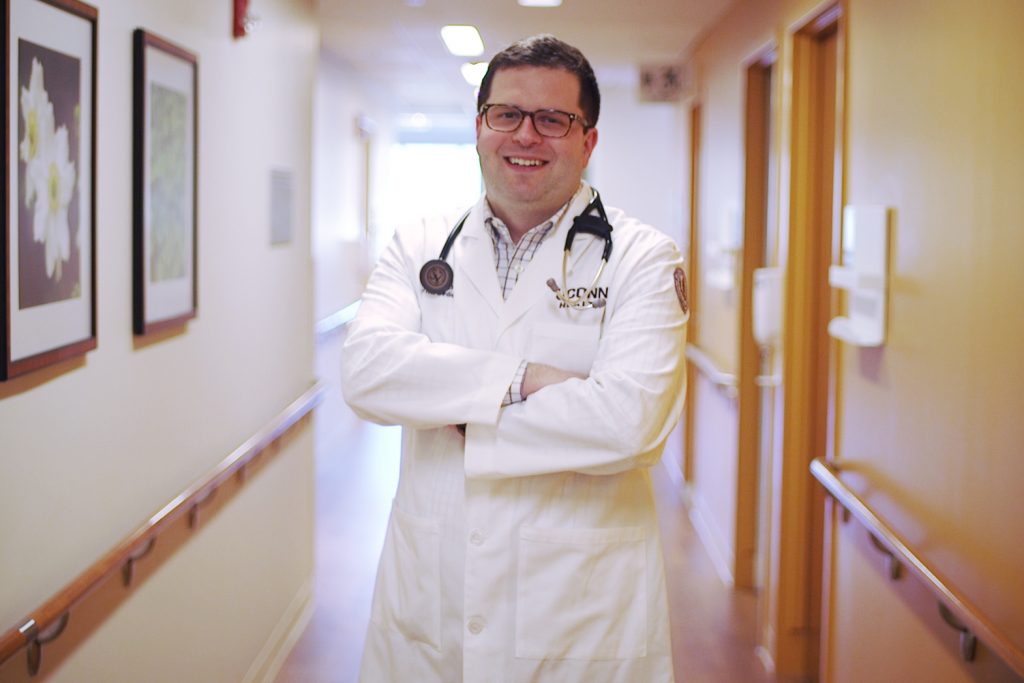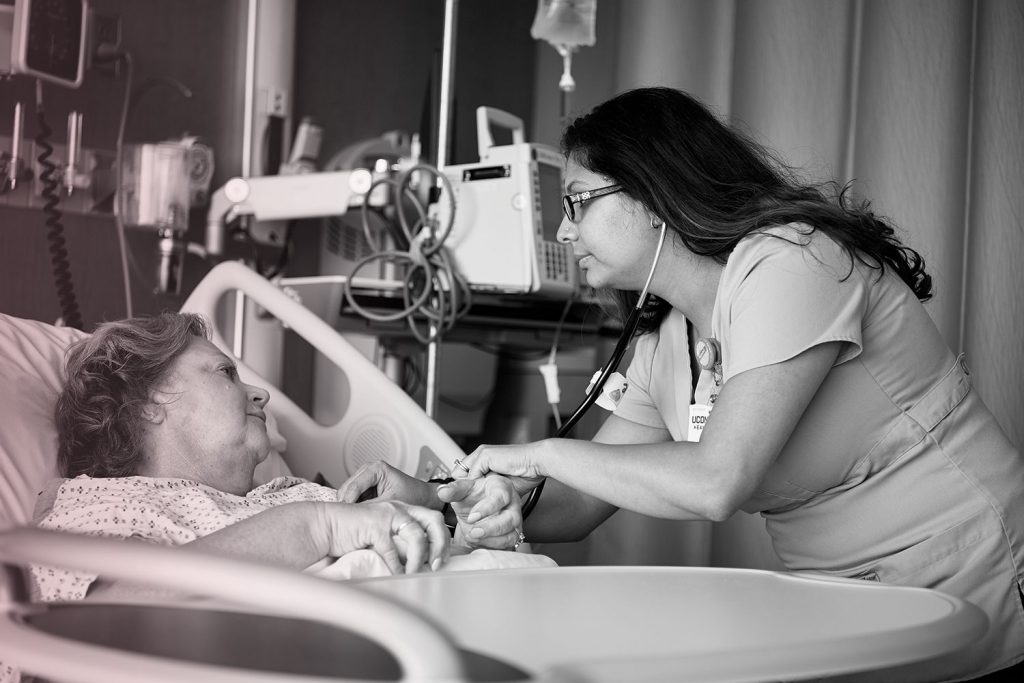UConn Health
Meet the Researcher: Riqiang Yan, Neuroscience
Riqiang Yan initially started out researching in a different medical specialty altogether, but after turning his attention to Alzheimer's disease has become one of the world's preeminent experts on the illness.
November 25, 2019 | Anna Zarra Aldrich '20 (CLAS), Office of the Vice President for Research
UConn Puts Seven On List Of World’s Most Highly-Cited Researchers
Six UConn faculty members were named to a list of researchers with significant influence in their fields.
November 22, 2019 | Mike Enright '88 (CLAS), University Communications
Q&A: The Dangers of Vaping
UConn Health’s Dr. Mario F Perez, assistant professor of medicine at UConn School of Medicine, discusses his research pointing to potential dangers associated with vaping.
November 14, 2019 | Lauren Woods
Stopping Flu Myths Before the Flu Stops You
Dr. Imran Ali at UConn Center on Aging busts the most common flu myths. Myth #1: The flu isn’t that bad -- it's just sniffles and body aches.
November 13, 2019 | Lauren Woods
Up and At ‘Em: 94-Year-Old Stronger Than Before Hip Fracture
UConn's STEP-HI study is seeing early success with a new combination of exercise training and hormone replacement for women who have experienced hip fractures.
October 30, 2019 | Jennifer Walker
In Connecticut, Drug Overdoses Doubled in Six Years
Cocaine, alcohol, heroin, methamphetamine, MDMA and other drugs are appearing on the toxicology reports of drug overdose victims, and often in combination, says UConn study.
October 29, 2019 | Kim Krieger
Use of Emergency CPR Device Rises Despite Lack of Evidence
Although the use is increasing, mechanical CPR has not been tested for effectiveness by the Federal Drug Administration (FDA), says Greg Rhee of UConn Health.
October 29, 2019 | Tom Kertscher, freelance writer
Meet the Researcher: Alix Deymier, Dental Medicine & Engineering
UConn's Alix Deymier has taken an unorthodox route to being a bone researcher, but has always been guided by insatiable curiosity.
October 23, 2019 | Anna Zarra Aldrich '20 (CLAS), Office of the Vice President for Research
Meet Dr. David Ozimek, Primary Care Physician
Forming long-term relationships with patients is important, says Dr. David Ozimek of UConn Health.
October 17, 2019 | Ethan Giorgetti, UConn Health
At UConn Health, the Breast Cancer Journey is Handled with Care
The breast team at UConn Health strives to guide each patient through every step of their individual path with an unmatched level of attention and comfort.
October 16, 2019 | Kim Krieger
